Mimmo Lucano: “It’s easier to spread humanity than hate”
In an event dedicated to the theme of “accoglienza,” a series of speakers discussed the importance of the inherently human value of hospitality at New York University’s Casa Italiana Zerilli-Marimò.
The guest of honor was Domenico “Mimmo” Lucano, the former mayor of Riace, known for having pioneered the “Riace model” - an example of “accoglienza” - by hosting refugees in the homes left abandoned by the decades-old exodus of its residents. Riace, like many towns in Southern Italy, has in fact been facing a major population decline for decades now, as people increasingly move North or even abroad in search of more opportunities, of a better life.
The first to take the stage was Pietro Costa, founder of BACAS (Borghi Antichi Cultura Arti Scienze), a non-profit organization dedicated to encouraging and sustaining interdisciplinary collaborations between artists and scholars from all over the world to broaden the dialogue between America and Italy. Founded in 2018, BACAS organizes short and long-term residencies and fellowships, and curates exhibitions, workshops, and symposia in the Vallo di Diano in Cilento, a beautiful area to the South of Naples that is unfortunately undervalued and largely ignored, like many in Southern Italy.
BACAS shares with the former Mayor of Riace the mission of bringing new life to empty spaces and to create human connections. “One of our goals is to build a bridge between Italy and New York,” explained Mr. Costa. “And Mimmo symbolizes the crossing of this bridge.”
Upon his arrival, Mr. Lucano was met with enthusiastic applause. He began his intervention by thanking Casa Italiana and those who brought him here, on his first ever visit to America. “I am not a migration expert,” he then humbly stated. “I am a teacher, and when I became mayor, I dedicated myself entirely to the job.”
As Mayor of a town of 1600 souls, Mr. Lucano had the incredibly simple yet groundbreaking idea of addressing the issue of declining population that has plaguing many southern Italian “ghost towns” since the post-war period, by repurposing the emptied homes to host the increasing number of migrants and refugees that are arriving in Italy, themselves in search of a better life, away from war, violence, hunger. As he poetically put it, it’s as if “the sea were bringing back the people who left - they just have different faces.”
A short intriductory video was projected, explaining the history of Mimmo and of Riace, showing life in the small town today, where old locals and newly arrived residents - migrants from all over the world - live together in harmony. And why shouldn’t they?
Mr. Lucano believes that the real problem is mentality, perspective.“Today there is little memory of the fact that Italy used to be a place of departure for migrants,” he said. “And almost nobody realizes that since 2012, the number of people leaving Italy has once again surpassed the number of people entering it.” Nobody talks about that, we are so focused on the “invador” narrative.
He says we have to go back to our identity, but he doesn’t mean it in the nationalistic sense that many politicians are putting on the word, he means going back to the roots of our culture, of our humanity.
Hospitality has always been a central value in our society. It was at the base of Ancient Greek culture, on which western "civilization” claims to be based, as Classics Professor and co-founder of literary programs for BACAS, Tiziana Rinaldi Castro beautifully illustrated by reading an excerpt from Homer’s Odyssey, which she called “the mother book of civilization” and defined as the “journey of a man returning from war, who experiences what it means to be a wanderer, vulnerable.”
Professor Rinaldi Castro explained that because of the inherent vulnerability that comes with being a traveler, away from your home, the Ancient Greeks saw hospitality as a fundamental value. If a stranger showed up on your doorstep, you would make sure to feed them, bathe them, make them feel comfortable, before even asking them who they were, where they came from, what brought them there.
This is the same mentality with which Mimmo operated, one that he believes to be natural. “I was brought up to feel proud when I met a stranger, not suspicious,” he stated with the disarming simplicity that characterizes this refrenshingly unusual politician.
In fact, his political carreer didn’t seem very promising at first. He confesses that the first time he ran for office, he must have gotten a total of 20 votes, not even his father voted for him. But after he finally was elected Mayor of Riace in 2004, he got re-elected another three times. This despite, or perhaps because of, his decision to welcome migrants. “The people of Riace saw, they met those people, they matured a conscience. They understood what pushes them to come,” he explained.
Mimmo too met many people, heard many stories, some heartwarming, others heartbreaking. Because even once these men, women, children make it to Italy, after escaping war-torn homes, crossing countless countries in the direst conditions, often being detained in glorified concentration camps in places such as Libya, and finally embarking on makeshift boats to cross the Mediterranean, after all of this, oftentimes their journey still isn’t over. They are met with suspicion and resistance, put through never-ending bureaucratic procedures seemingly aimed at finding a reason to send them away again. Mimmo tried to help when he could, and that’s what ultimately cost him his job.
People have now started to adopt the preconceived notion that immigration is inherently a problem, a stresser on the land and the people receiving it, but as Mimmo put it, in the case of Riace, “they arrived in a land of houses without people.” By adjusting this perspective, a negative fact can become positive, a threat can become a solution. The new influx of people brought life back to the town, it helped keep open its school, fill its empty maternity ward, resuscitate its businesses, and populate its streets.
The successful integration that took place in Riace, a small struggling town, disproves the rhetoric that many are using to spread fear claiming that migrants are coming to steal resources. “If it worked in Riace, it could work anywhere.”
Unfortunately, there are those who are pushing for the negative outlook, creating and instrumentalizing fear. In 2018, Mimmo was removed from office and placed under house arrest by those who perceived what was happening in Riace as a threat. In 2019, he was indicted on charges of abuse of power and aiding illegal immigration and then probed for false public statement and fraud. As he eloquently put it, “they are criminalizing solidarity.”
But he remains positive, and continues to spread his message. When asked whether the Riace model is replicable, Mimmo answers of course. “We built a small global community with a natural sense of human cohabitation at its core. That’s all there is to it. It’s easier to spread humanity than hate.”






























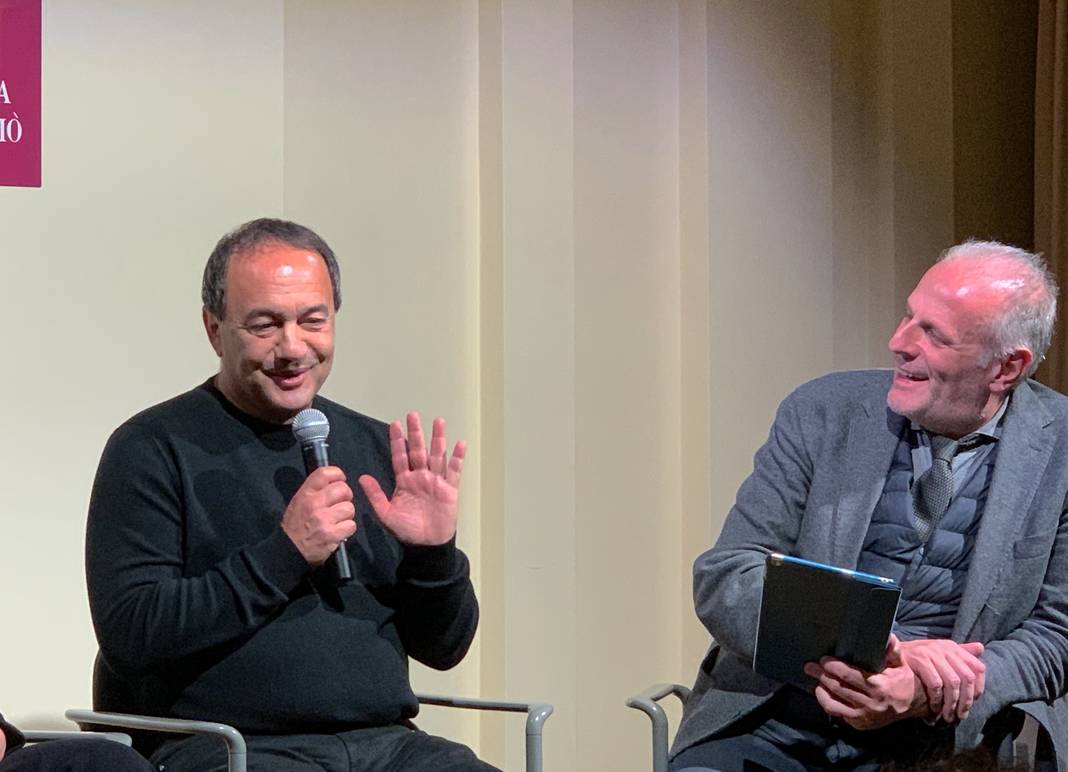
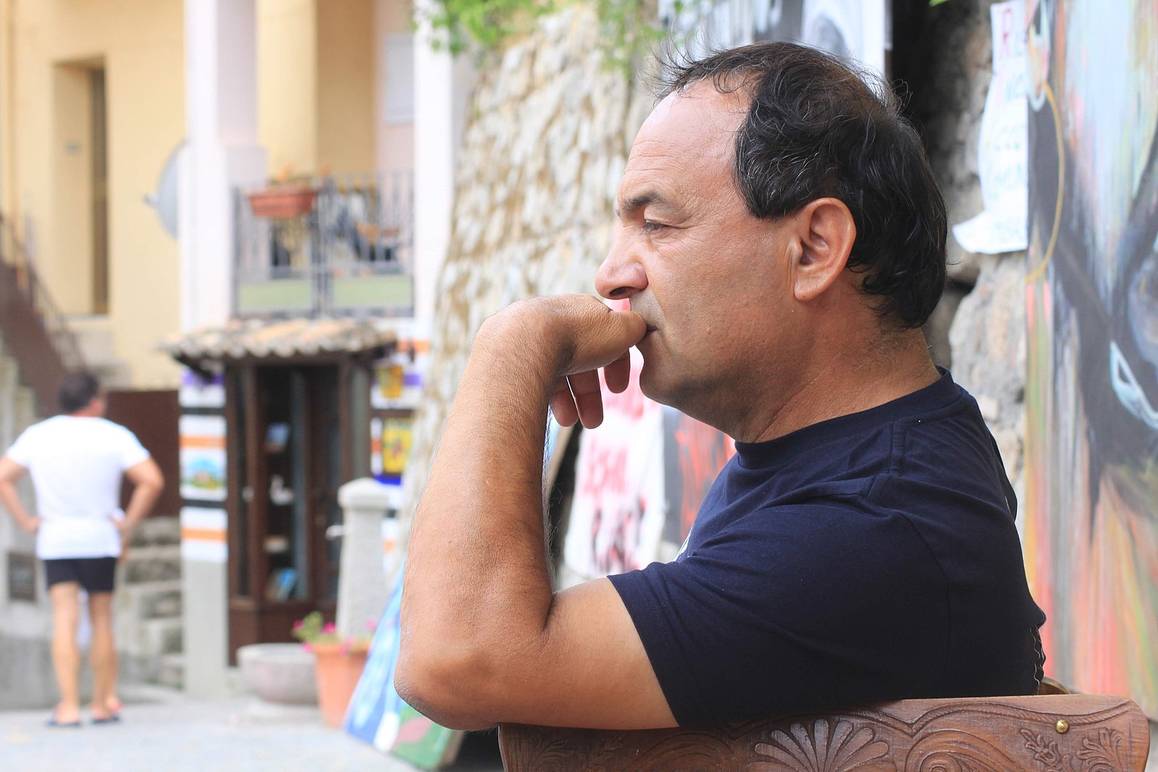
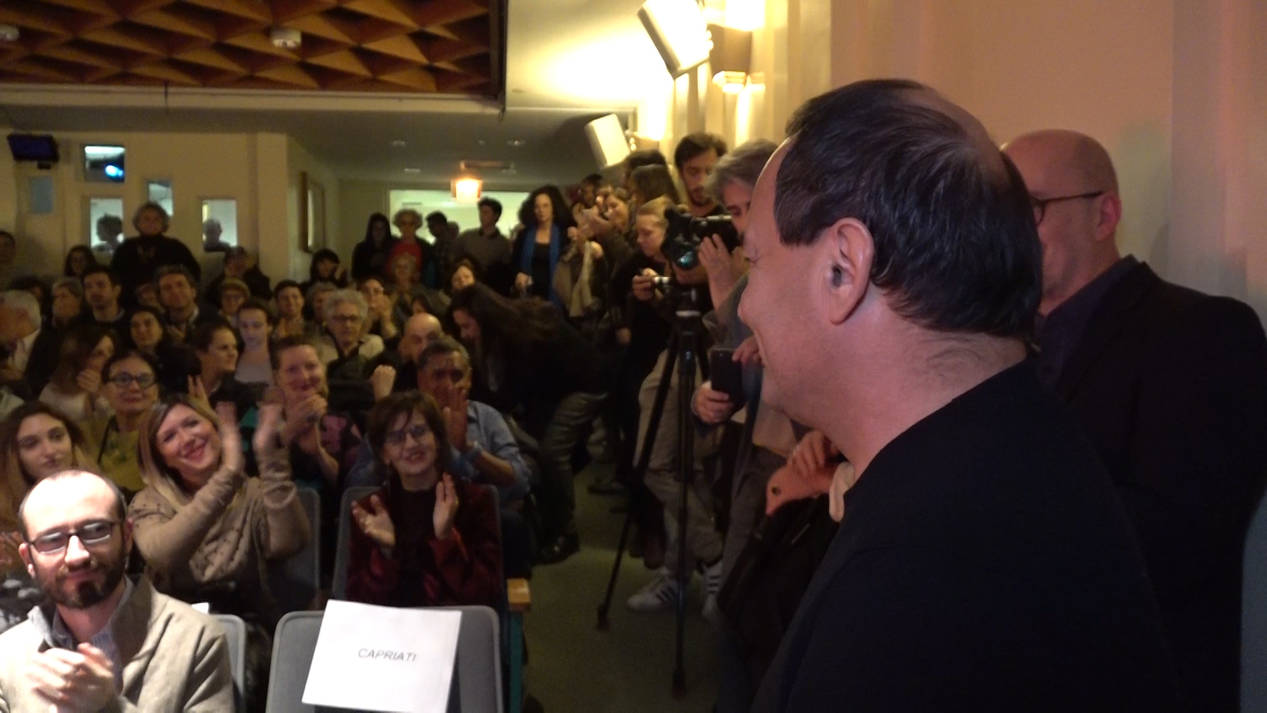
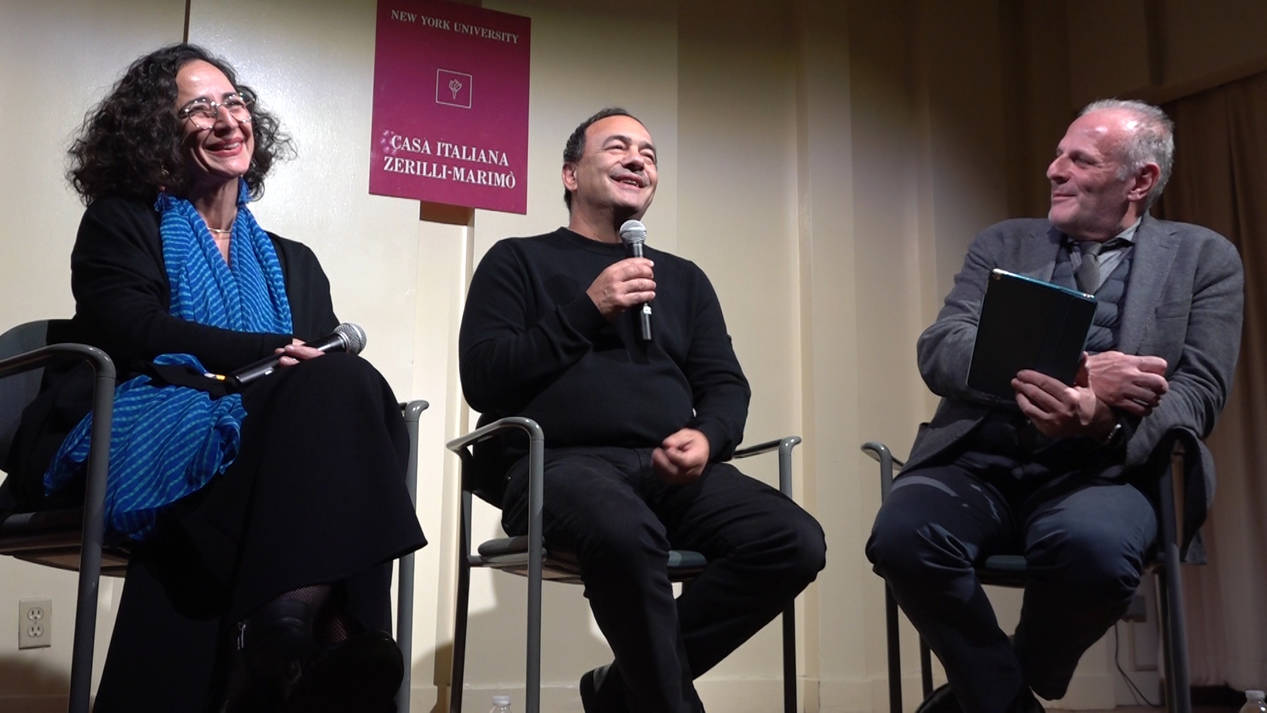
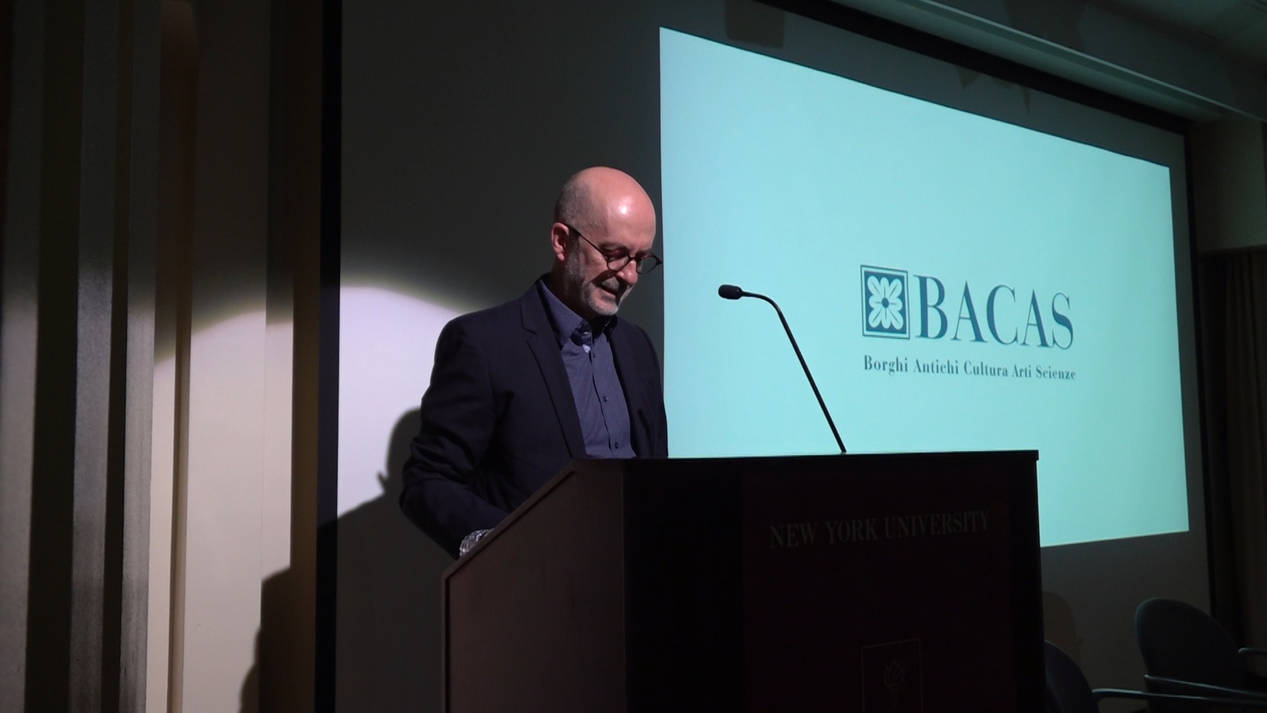
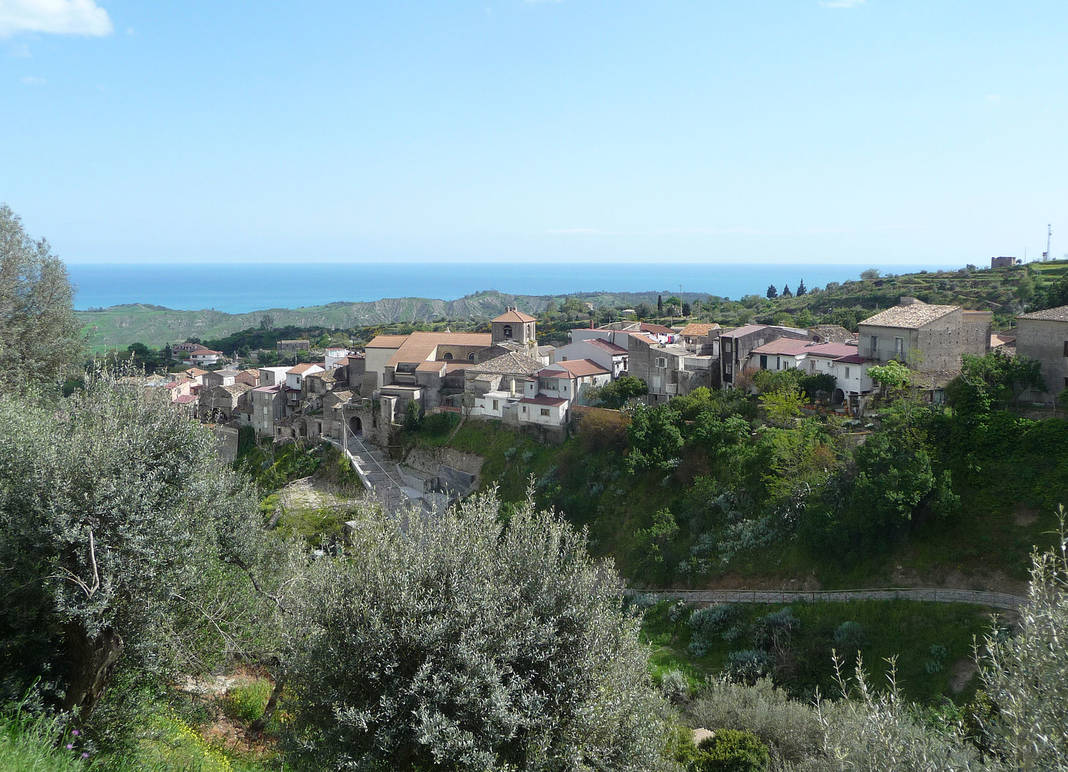
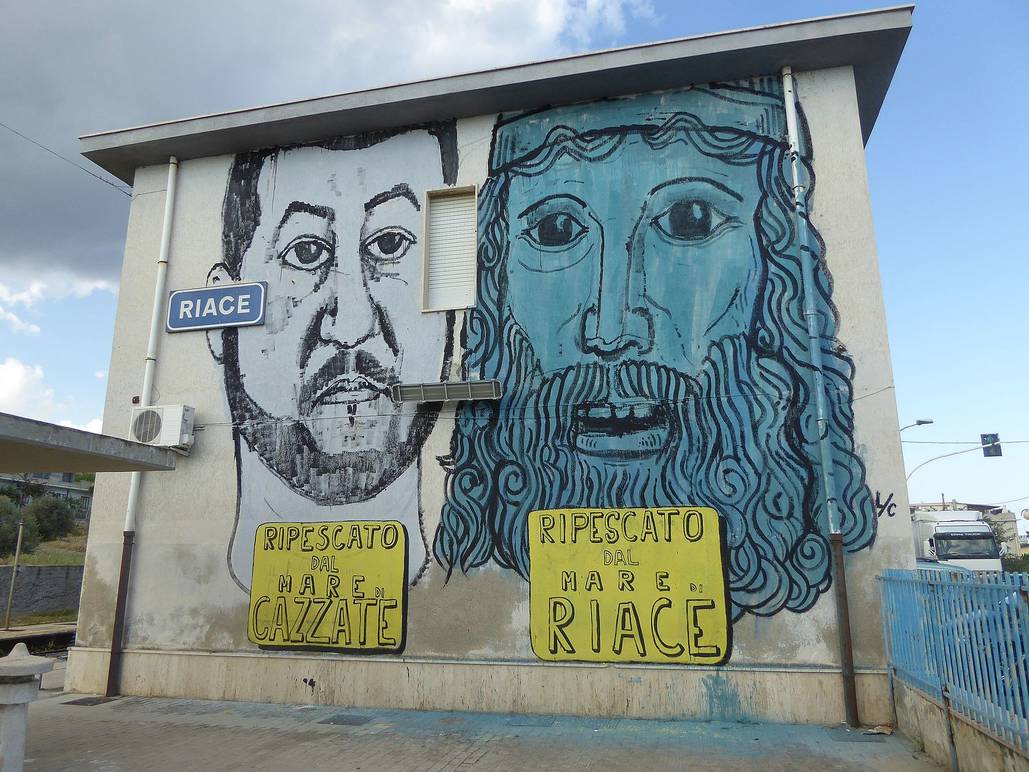
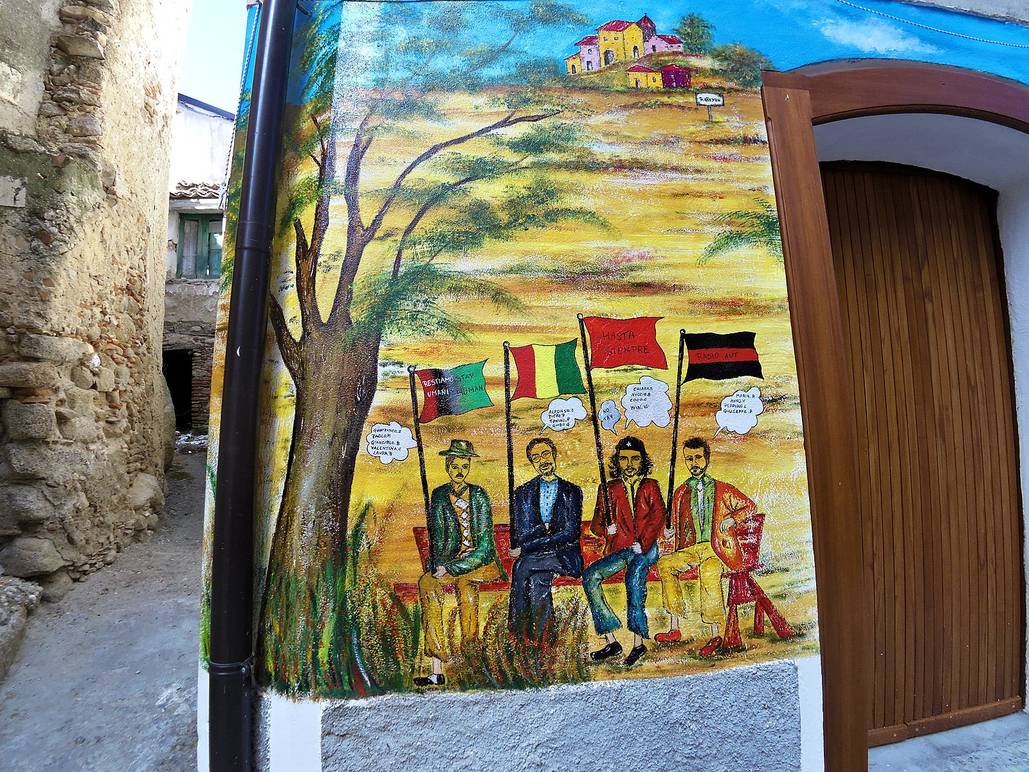
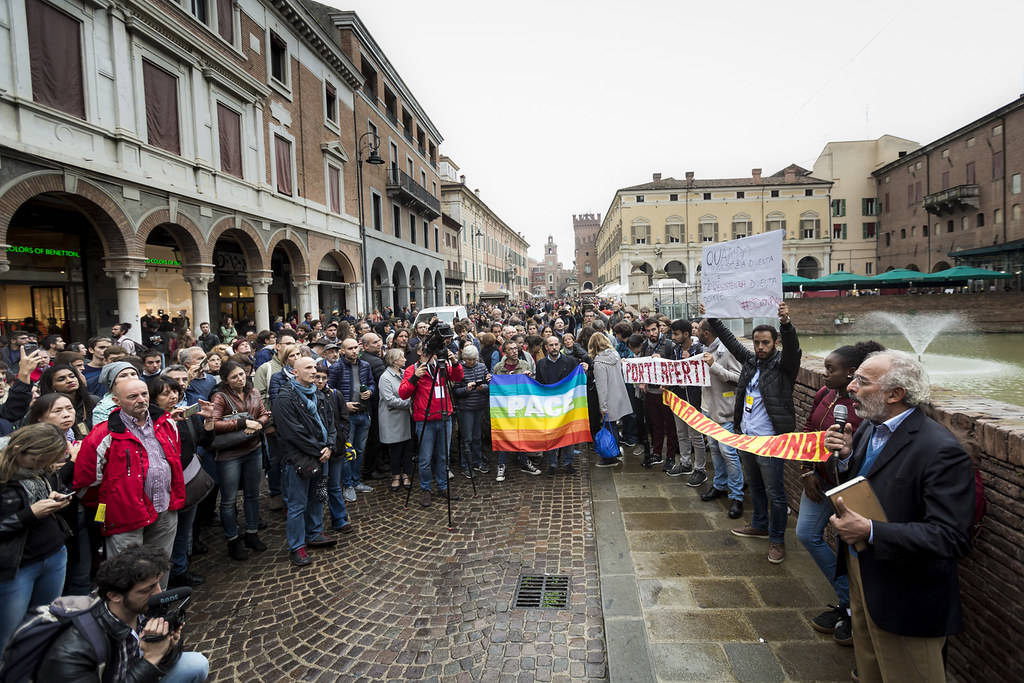



i-Italy
Facebook
Google+
This work may not be reproduced, in whole or in part, without prior written permission.
Questo lavoro non può essere riprodotto, in tutto o in parte, senza permesso scritto.